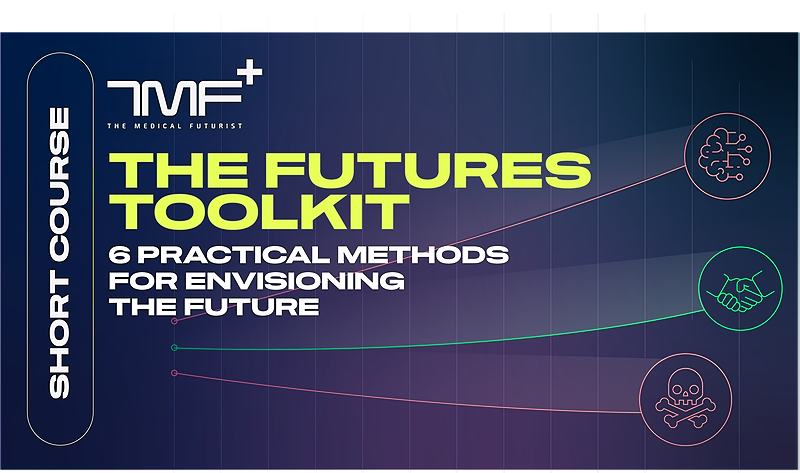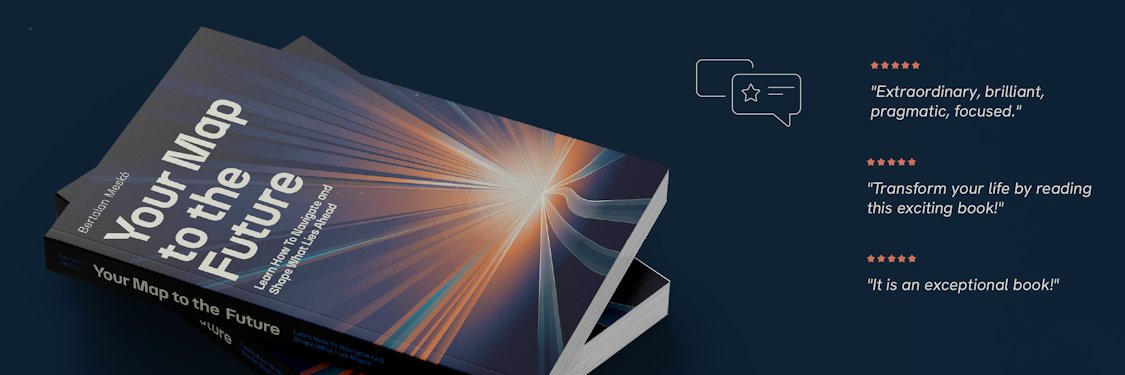
Berci Meskó, MD, PhD
@Berci
The Medical Futurist, Author of "Your Map to the Future", Global Keynote Speaker, and Futurist Researcher
I cannot express my happiness and excitement about a book I’ve been working on for so long! Here is Your Map to the Future: Learn How to Navigate and Shape What Lies Ahead! In this book, I make science-based futures methods, that only experts including me at The Medical…
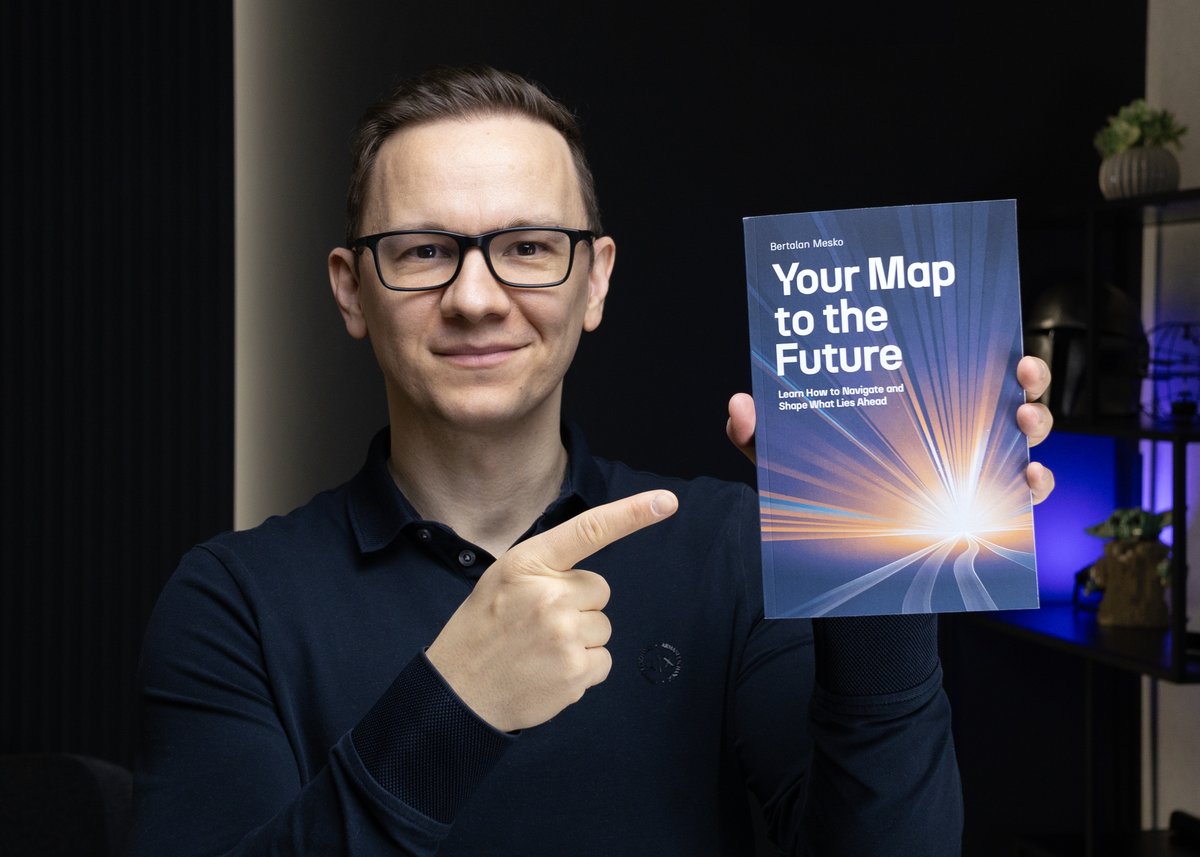
Recognizing the onset of hypoglycemia, or low blood glucose, was one of the main reasons for developing artificial pancreas systems. But those are still big and expensive. How about a sort of RFIC microchip implanted under the skin that is designed to automatically or remotely…

This June, the FDA launched a generative AI assistant called Elsa, to help with tasks such as: Summarizing adverse events for safety evaluations Reviewing clinical protocols Comparing drug labels Generating internal database code The first news was about how tasks that…

Digital twins represent one of the least practically understandable concepts of digital health and AI. You can see a sensor or wearable providing data. You can see the results of a study analyzing how a certain AI can contribute to healthcare. But how can you demonstrate digital…
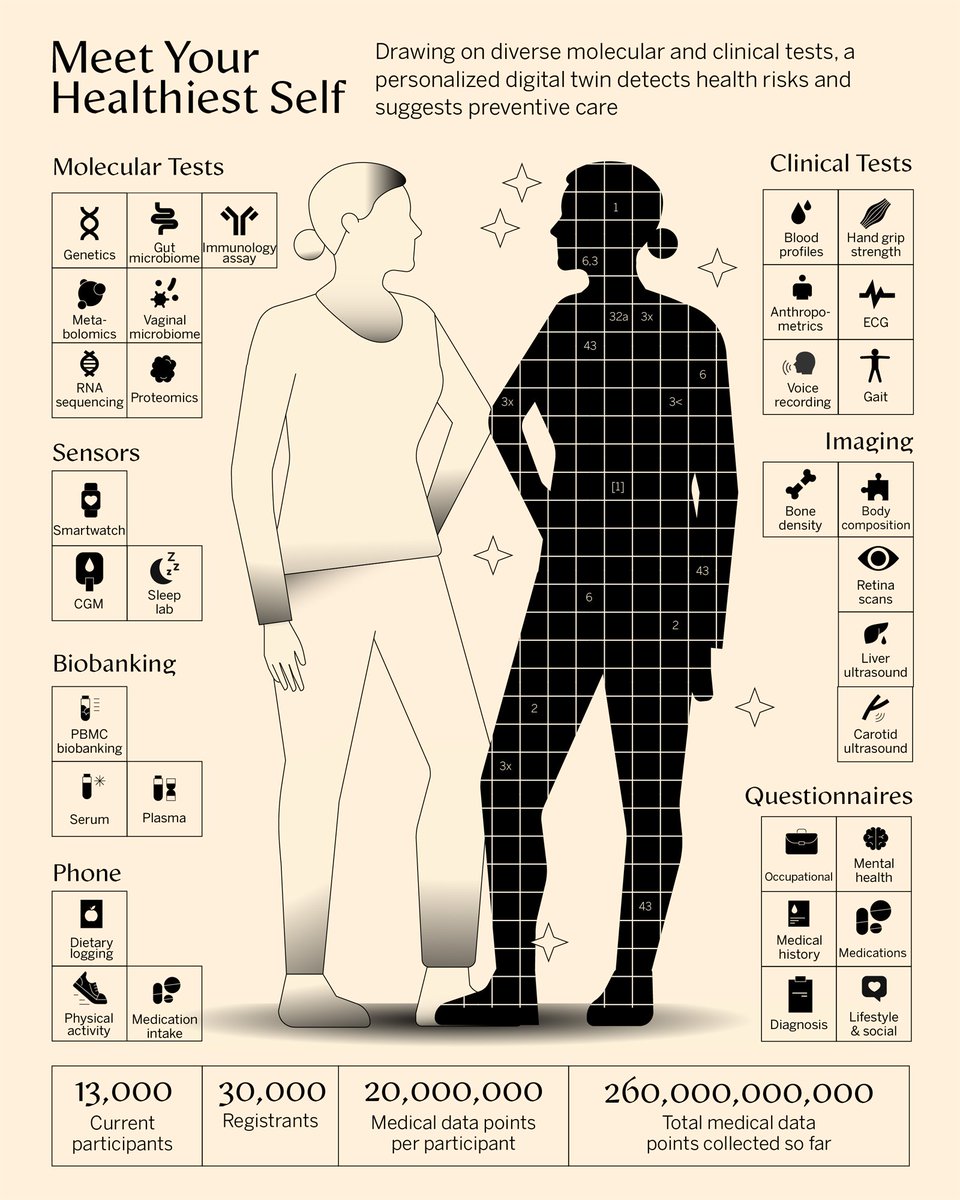
It's a common question and challenge of how it is possible to bring an AI development into the actual practice of medicine. This paper analyzes the whole process of how new AI technologies require funding, compliance with safety and regulatory frameworks, health technology…
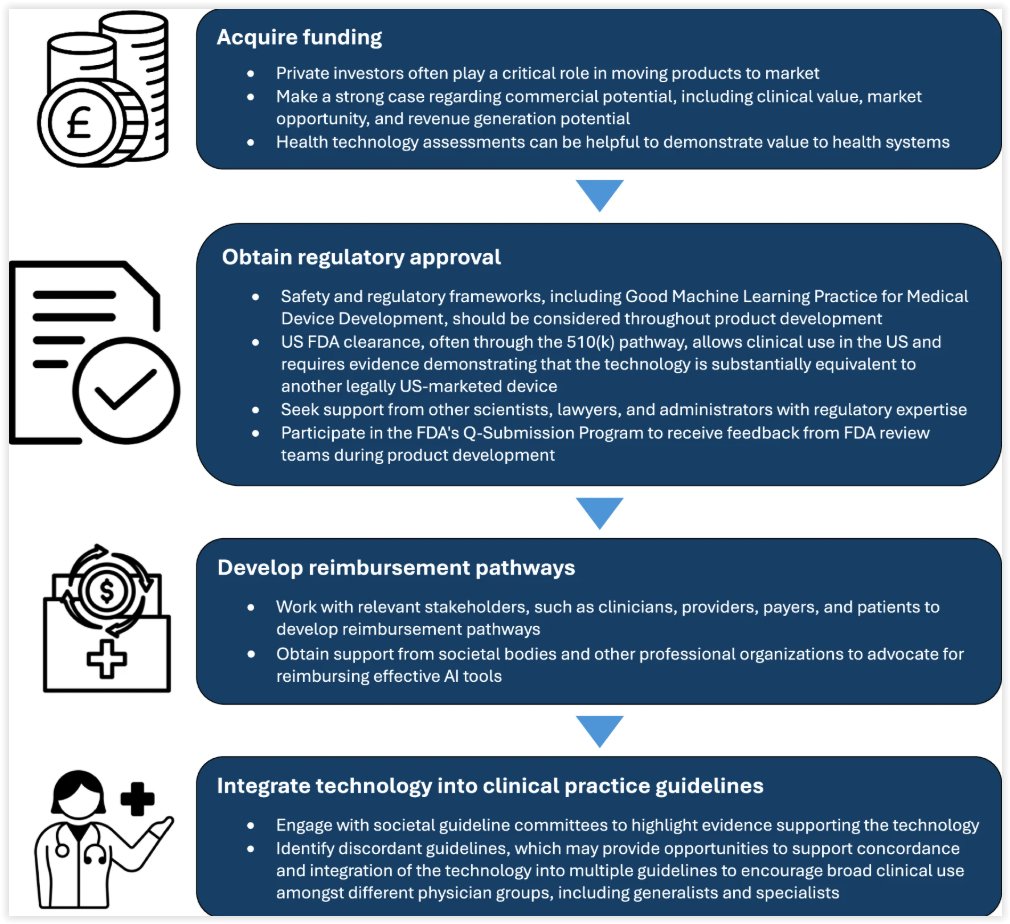
A potential new way of administering insulin, GLP-1 medications or antibodies? No needles anymore, only an "exploding" pill? "These drugs usually have to be injected because they can’t overcome the protective barriers of the gastrointestinal tract. The new capsule uses a small…
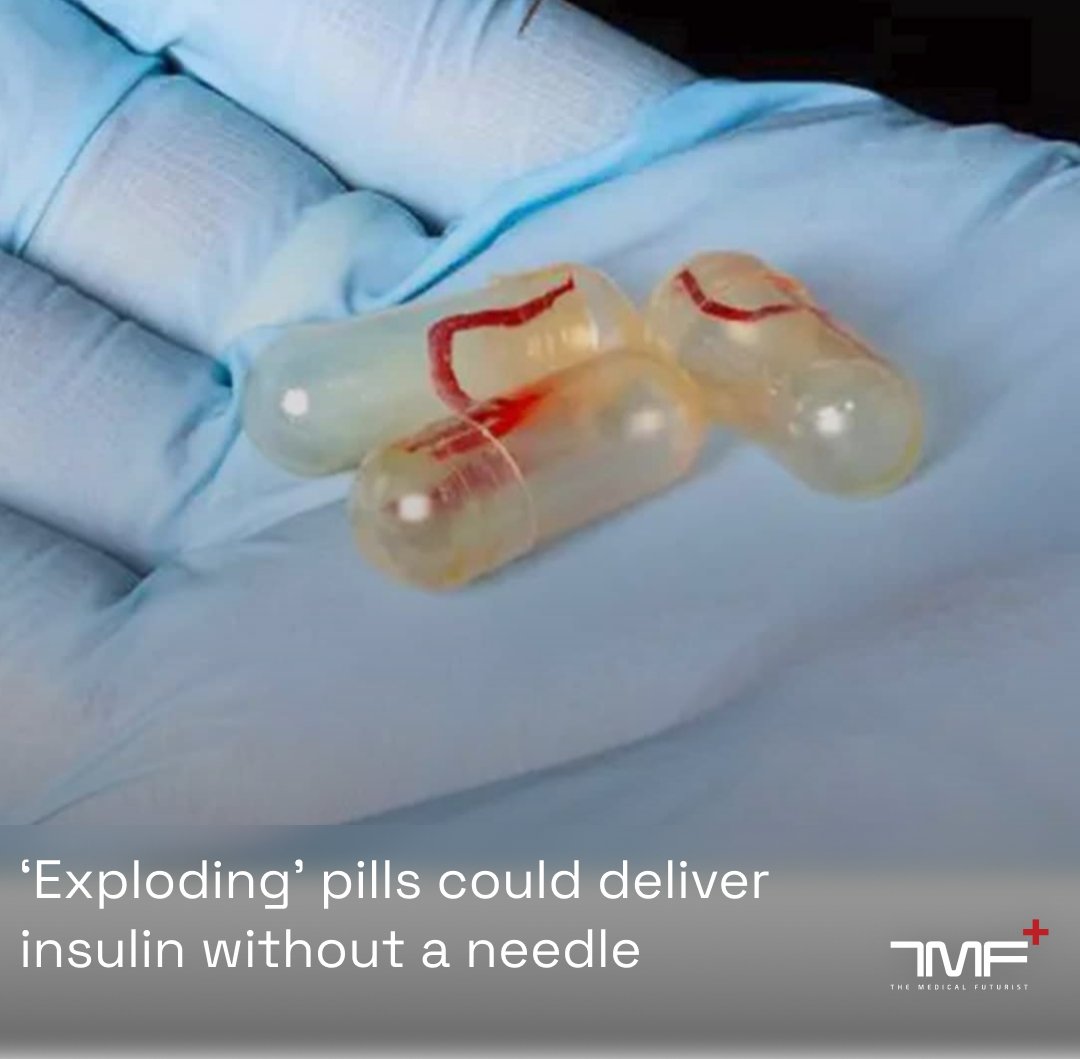
How do we know if a healthcare innovation will take off or not? The answer often lies in one concept: The Technology Adoption Curve. I've just released the 2025 Edition of my most practical e-book: leanpub.com/techadoptioncu… It’s designed for innovators, health professionals,…

Do you ever have the experience that ChatGPT is too kind to you? That it praises what you say or ask? Well, it wants you to feel precious. Such cognitive bias accounts for many preventable errors in healthcare. And large language models (LLMs) are at risk of inheriting – and…
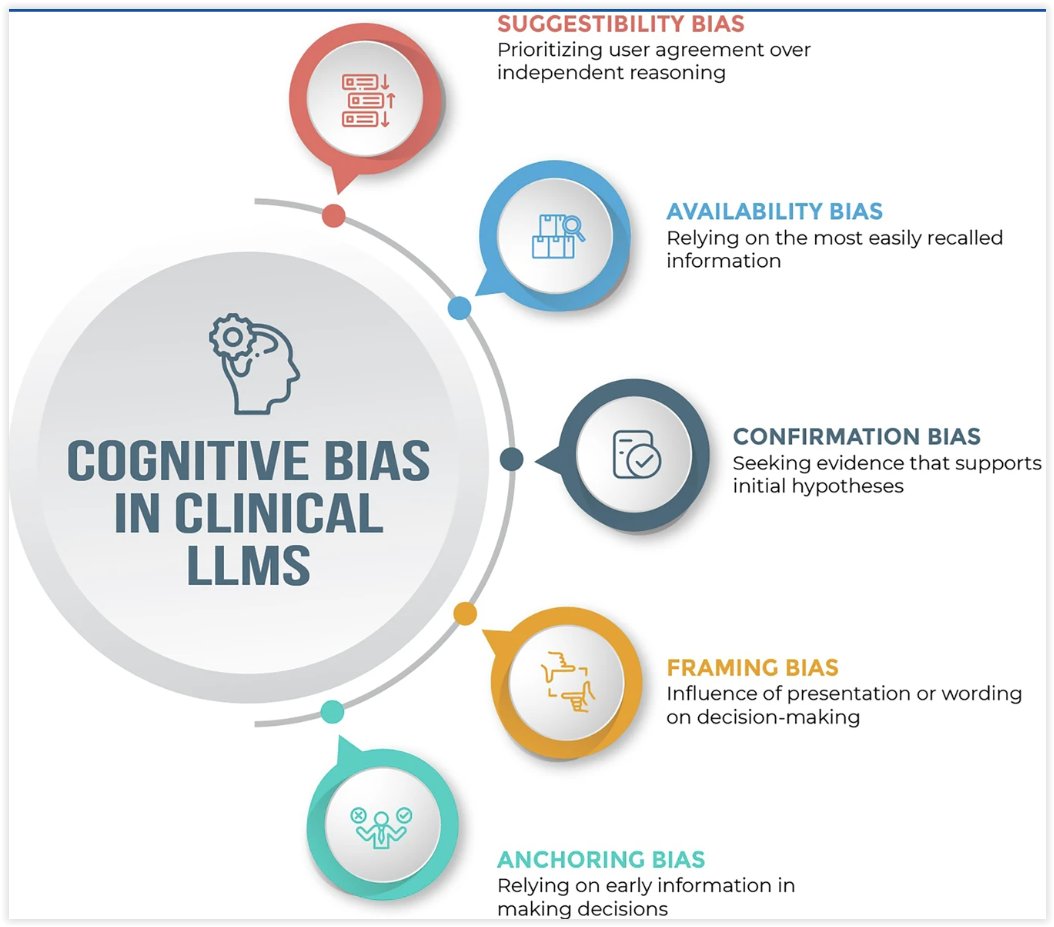
Steve is the hero of the current digital health and AI revolution! Without people like Steve, there would be no revolution, as that is based on the precious data of patients. "The world's biggest human imaging project says it has now hit its target of scanning the brains,…
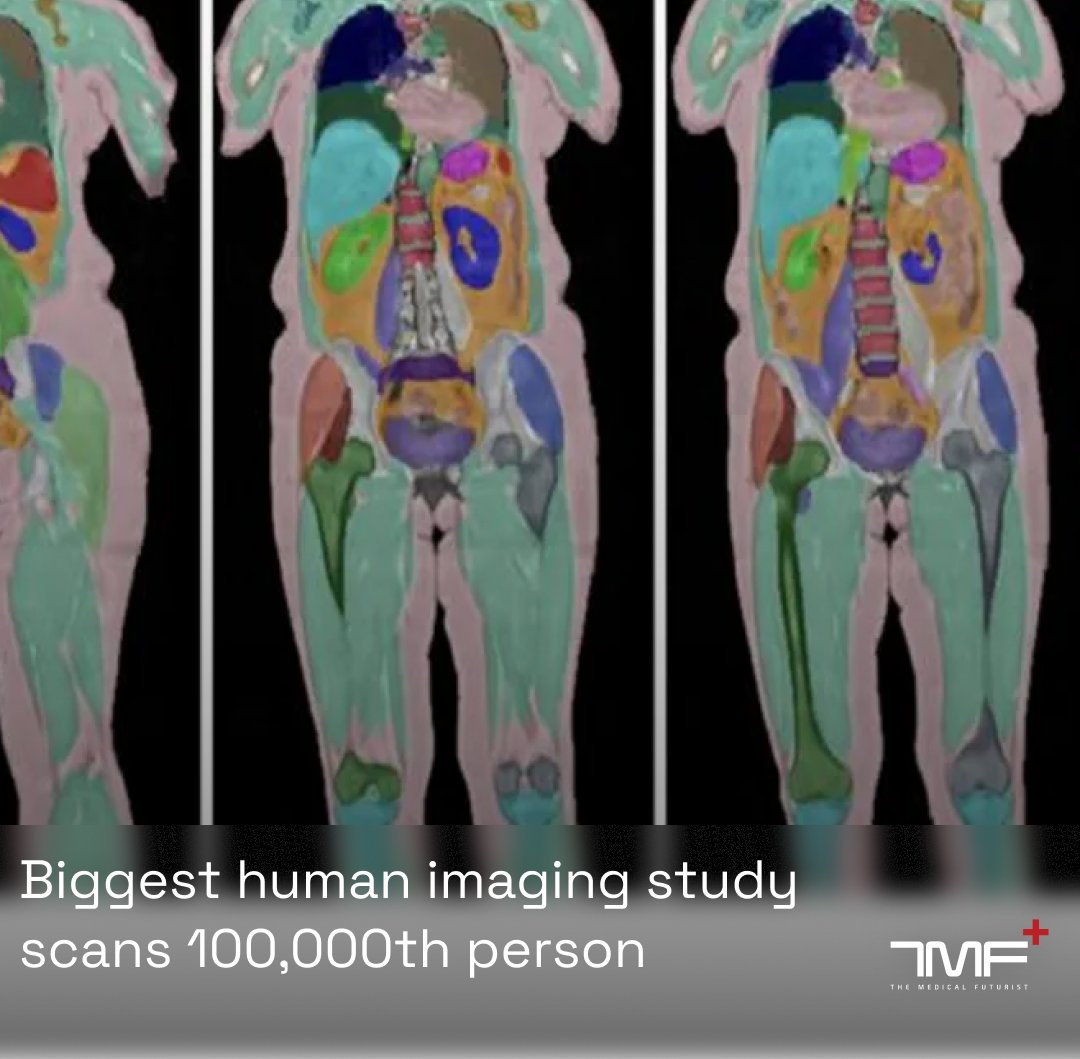
Imagine you’re one of the first colonists on Mars. A historic moment. A giant leap for humanity. But then, something goes wrong. Blurry vision. A sudden, unexplained symptom. You’re stranded, millions of kilometers from Earth. No hospital. No doctor down the hall. What happens…
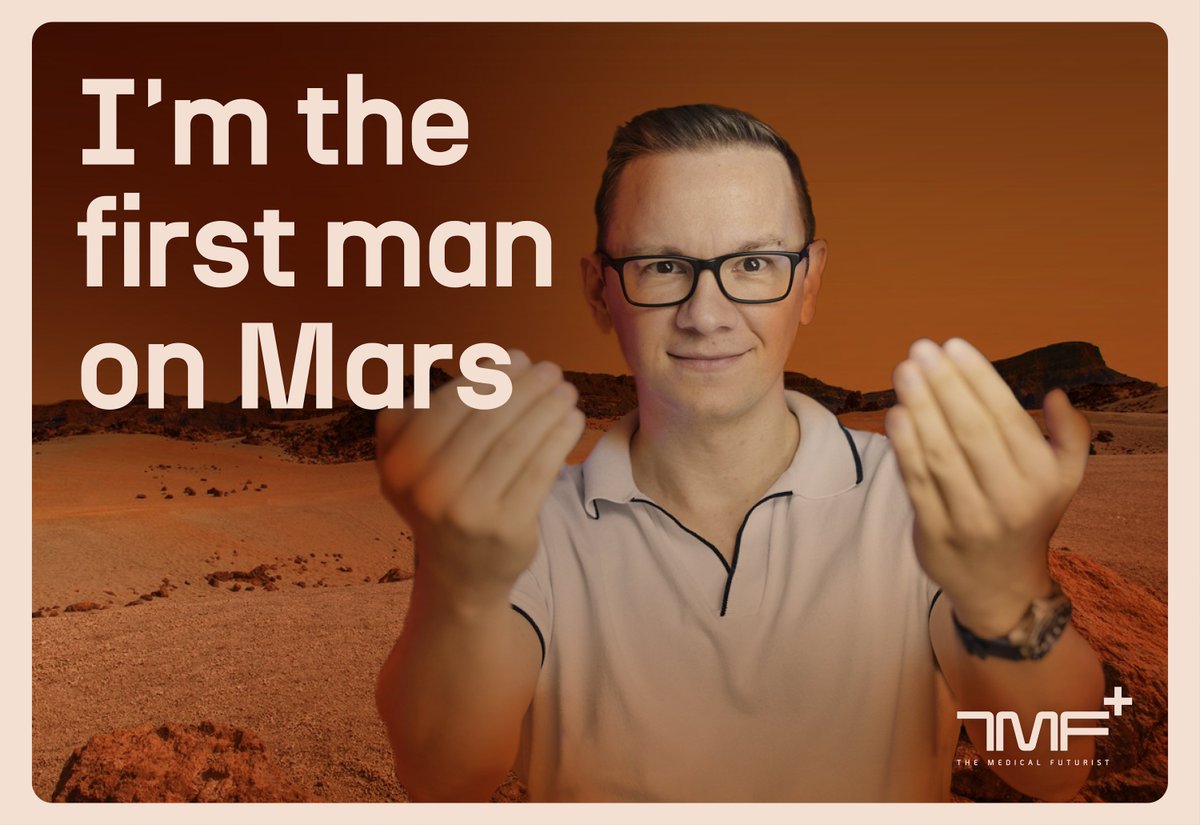
The e-patient revolution has been going on for decades. I often get the question: what does e mean in that? Moreover, if patients benefit from using digital technologies, how about e-physicians who can enjoy the same benefits? I tried to summarize all these in one infographic.
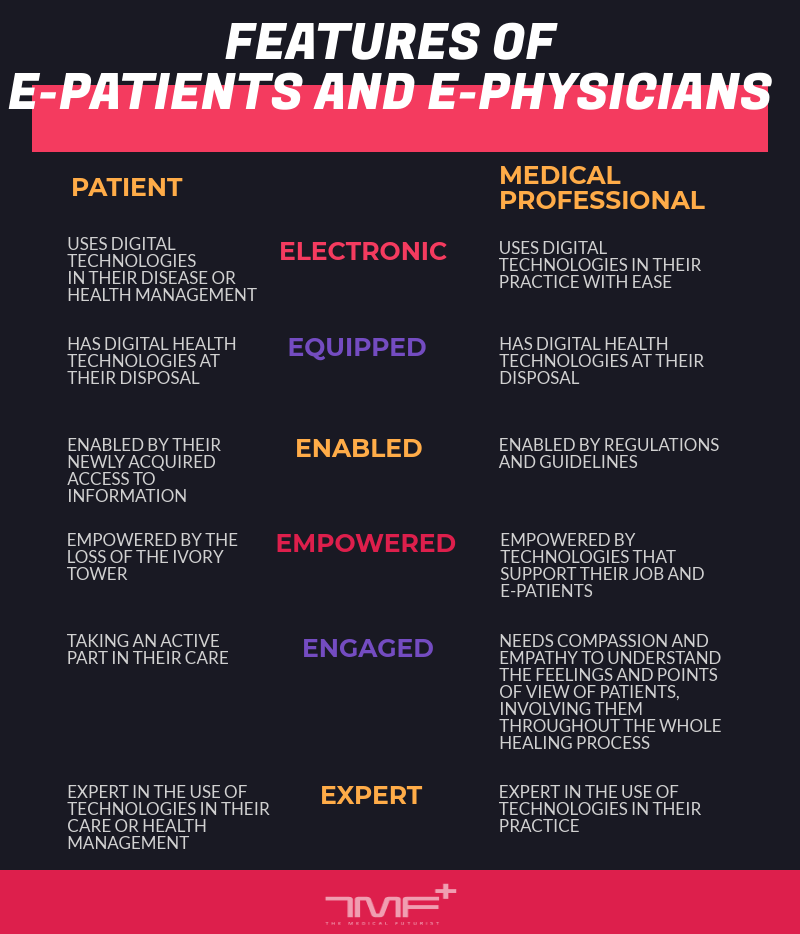
Which medical specialty will benefit from digital health and AI the most? How can healthcare professionals in the 20 most popular specialties prepare for the changes ahead? How will the appearance of AI, sensors, wearables, VR/AR or robots affect each medical specialty? Read…
Great debate: Artificial intelligence will replace much of what cardiologists do. A new paper in the European Heart Journal describes that. Interestingly, most of the points in the limitations of AI section can either be solved by a bit more oversight from regulators, or will…
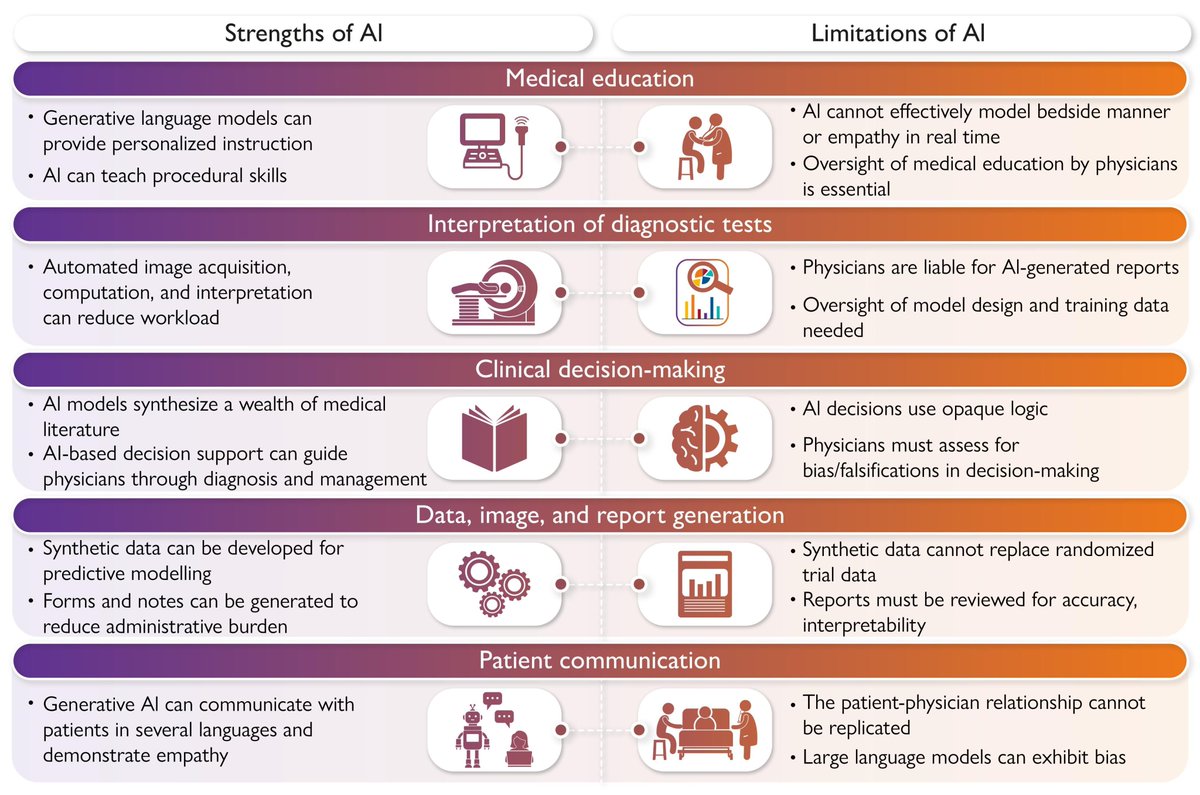
How wonderful! After a decade of failed attempts and bad press, gene therapies have recently shown great results and promise! Now, a form of gene therapy can successfully restore hearing in toddlers and young adults born with congenital deafness. "𝑈𝑛𝑙𝑖𝑘𝑒 𝑜𝑡ℎ𝑒𝑟…
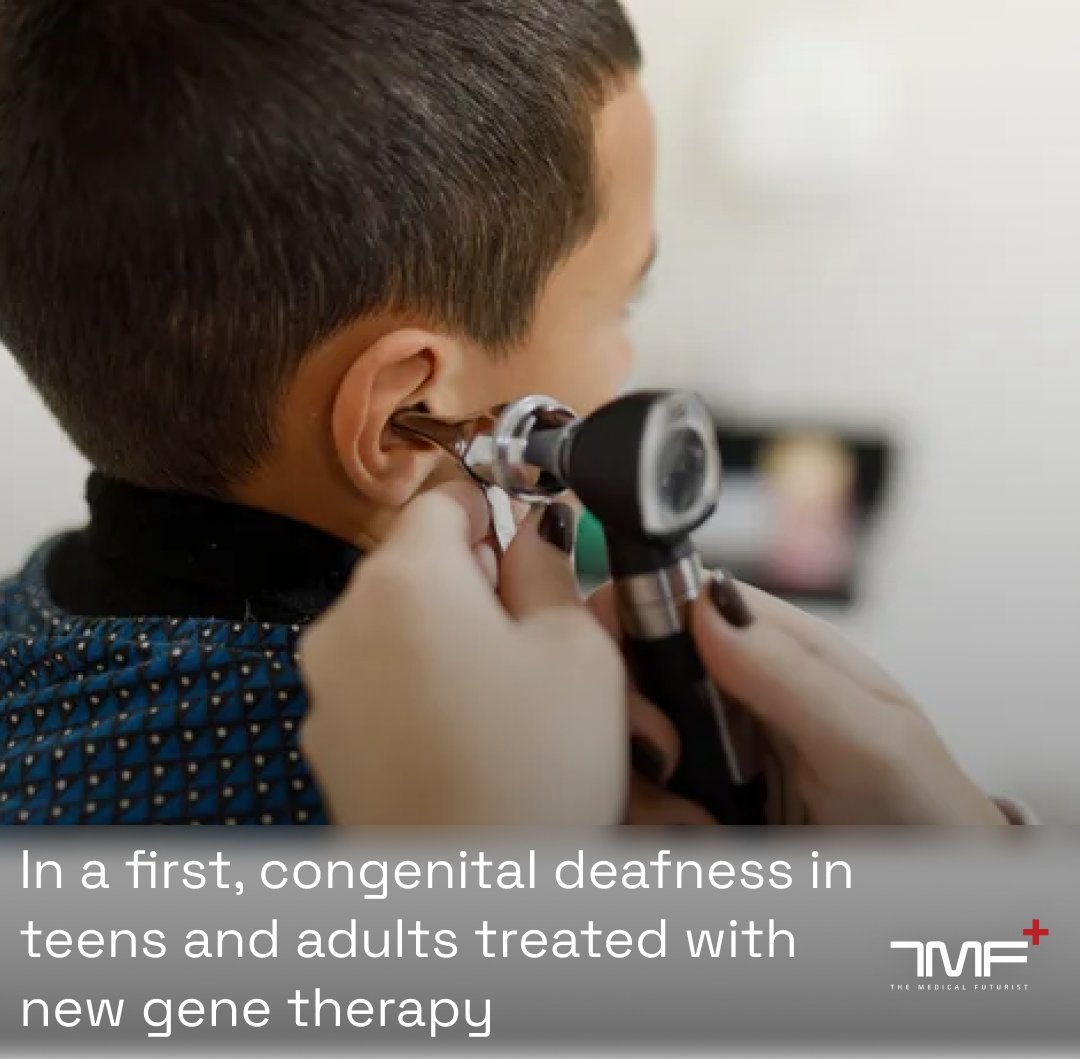
Most of the patients cannot even download their own medical records, but journalists are still very interested in brain-computer interfaces. They might even see the technology as a sign of our cyborg future. A PCMag journalist could visit the lab of Synchron, a top Neuralink…

Would You Let A Robot Take Your Blood Sample? A few years ago we wrote about Veebot, a robot that could draw blood. Tests showed that it can correctly identify the most accessible vein with an 83% accuracy. This is about as good as an experienced human phlebotomist. Moreover,…
A generative AI-powered medical device, known as “Prof. Valmed,” has received certification for use in the European Union! "𝑃𝑟𝑜𝑓. 𝑉𝑎𝑙𝑚𝑒𝑑", 𝑎𝑛 𝐴𝐼-𝑠𝑢𝑝𝑝𝑜𝑟𝑡𝑒𝑑 𝑐ℎ𝑎𝑡𝑏𝑜𝑡 𝑓𝑜𝑟 𝑡ℎ𝑒 𝑚𝑒𝑑𝑖𝑐𝑎𝑙 𝑠𝑒𝑐𝑡𝑜𝑟, 𝑖𝑠 𝑡ℎ𝑒 𝑓𝑖𝑟𝑠𝑡 𝑐𝑙𝑎𝑠𝑠 𝐼𝐼𝑏…
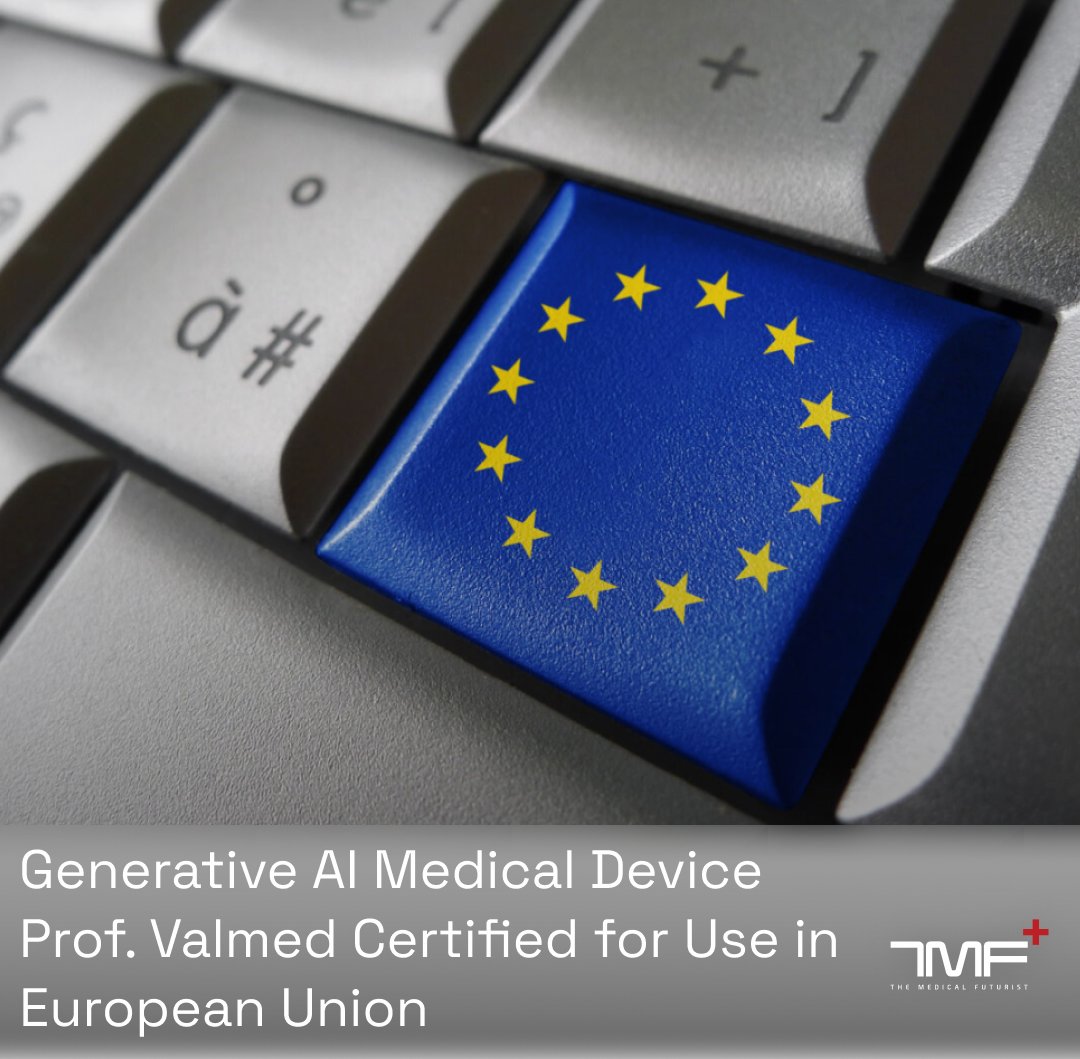
Researchers have developed 3D printed bone fixation implants that combine structural support with targeted antibiotic delivery to prevent infections during surgery! Great promise of using 3D printers at the patient's bedside, but: "The implants haven’t been tested in living…
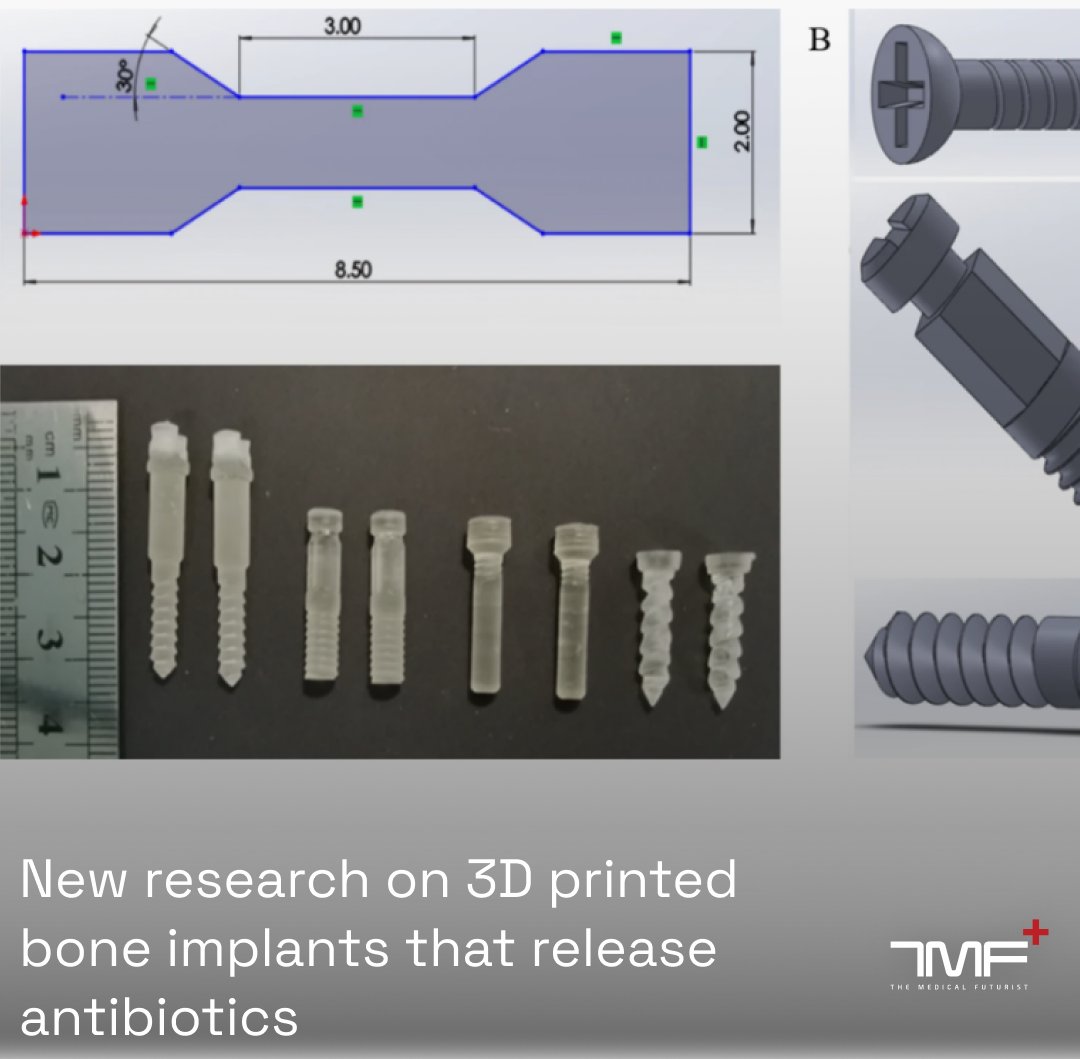
BREAKING NEWS! The FDA just released new lists and updated their existing list on approved/cleared AI-based technologies! Now they have three: an updated list of artificial intelligence-enabled medical devices (1247 entries with radiology being the dominant category) an updated…
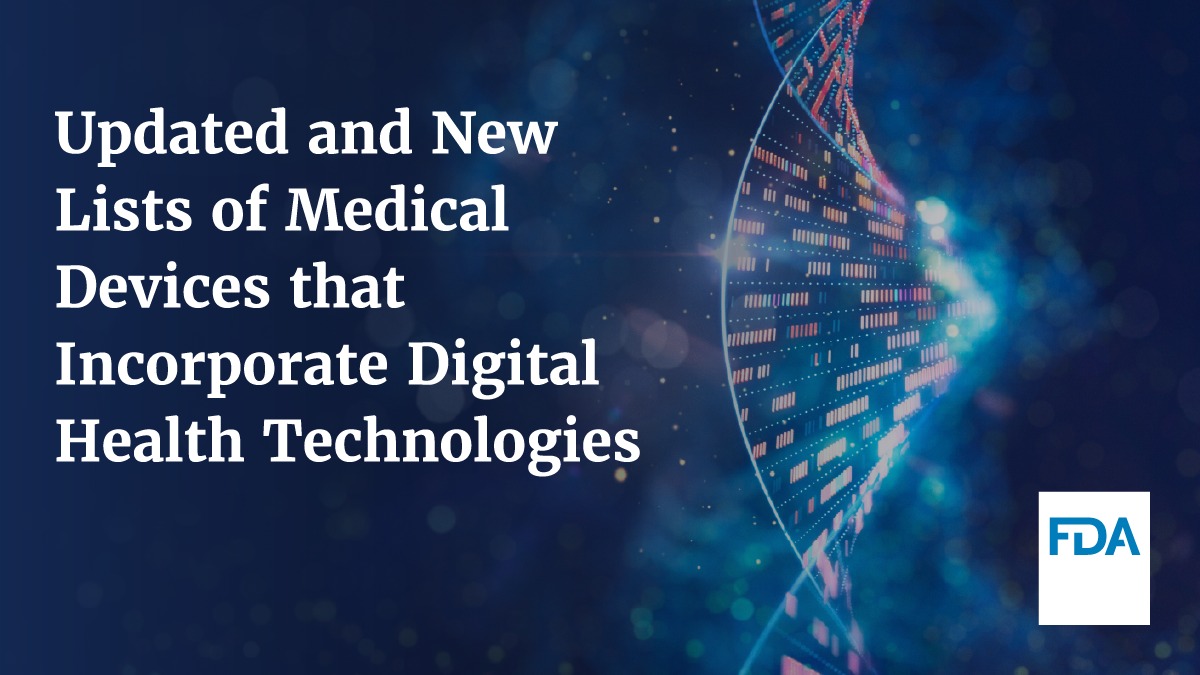
Would you use an AI health coach released by a tech company? Samsung plans to do that in the US this year. "The new platform will bring together data from its various devices, including wearables, and make it easier for users to share it with their doctor to receive better…
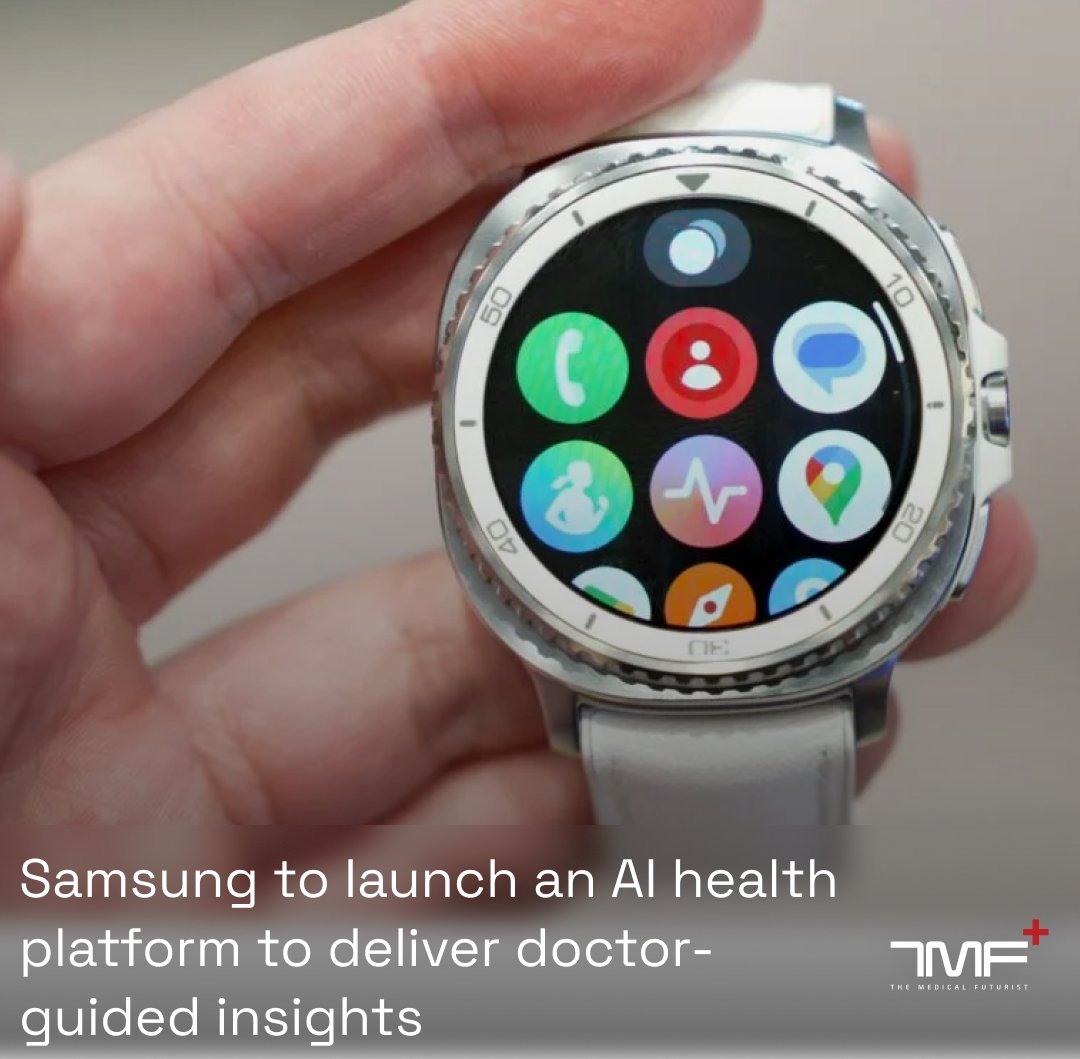
Learn to use very practical futures methods that professional futurists use every day to analyze the future(s) of your field of interest! A real fast-track course! Check it out: medicalfuturist.thinkific.com/courses/futures
